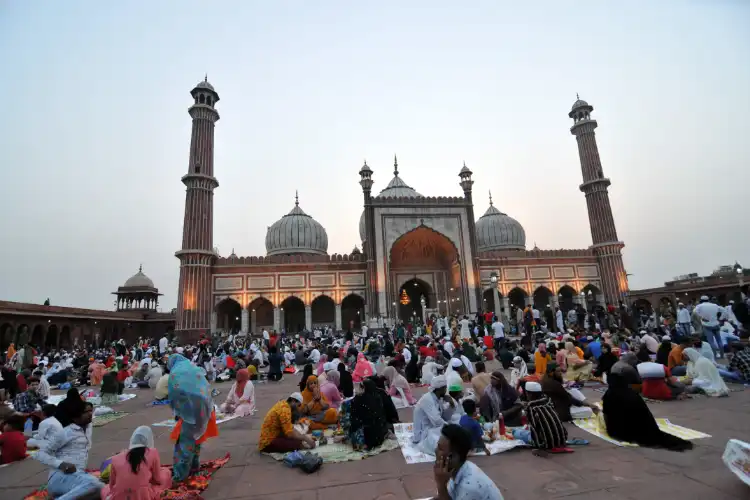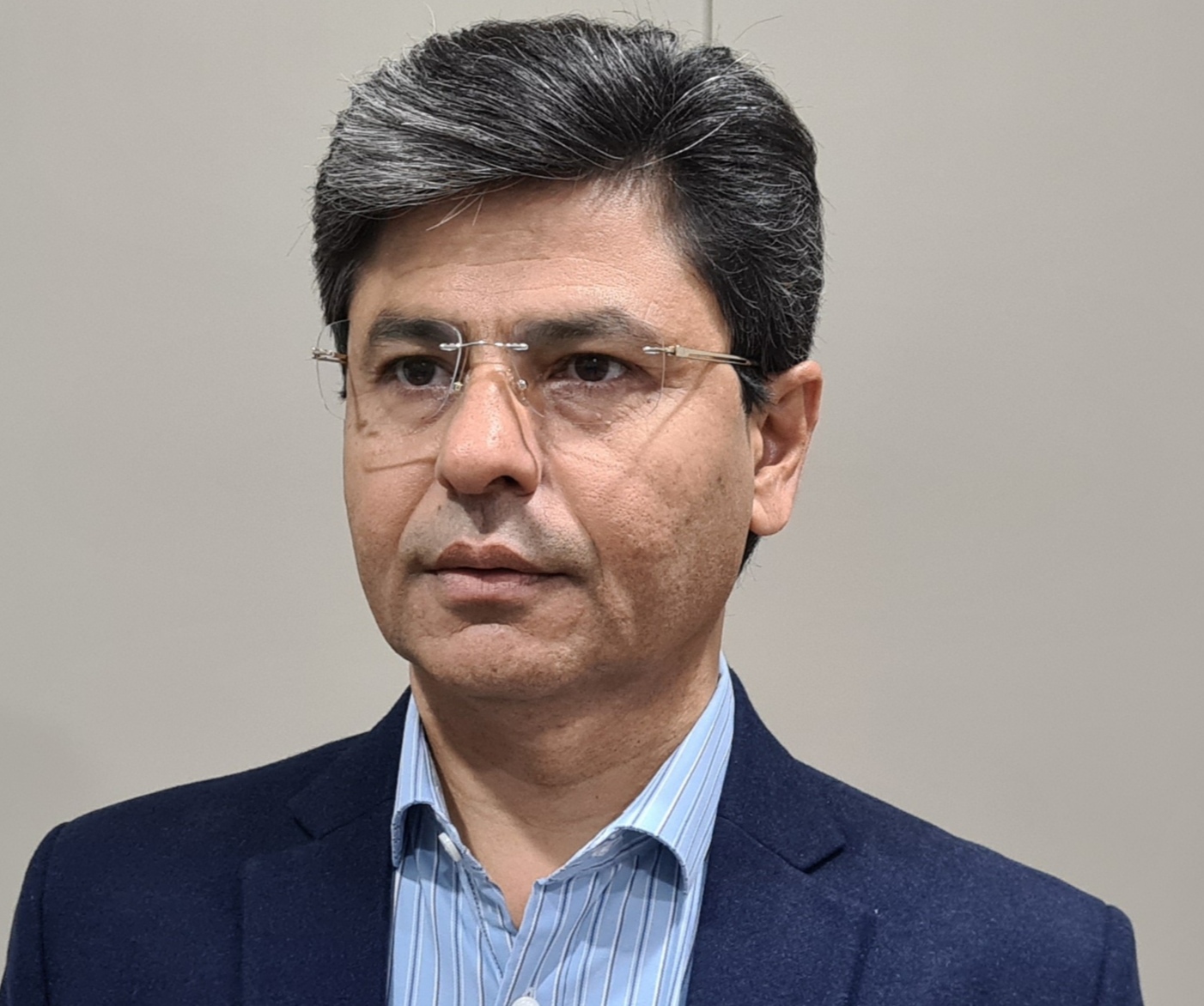
 Atir Khan
Atir Khan
At a time when Muslim political leadership has become almost negligible, intellectuals are redundant, Ulemas will have to assume greater responsibility in guiding the community. They will have to focus on steering Muslims toward their Constitutional rights rather than just confining them to the Islamic edicts.
Other than Assaddudin Owaisi, Azam Khan, and a few other names there is hardly any Muslim political leadership left in the country. Even these remaining political leaders have extreme views, which only suit the political interests and not the community as a whole.
Muslim intellectuals do not connect with the Indian Muslim masses. No matter how sensible their thoughts maybe they do not have an approach that could help them reach out to people in large numbers in the country.
Under such circumstances, the questtion is who will show the way to a community of more than 17 crore people in the country, which is radicalizing each passing day? No single day passes when you do not hear about utterances aimed at targeting people and communities. It’s high time to come to terms with the fact that Muslim political leadership has failed, the sensible recourse seems to rely on the Ulemas, some of which have organizational strength and funds, which could be used more judiciously.
Today Muslims need a collective effort more than the political leaders, who have played the second fiddle to various political parties. Indian ulemas such as Darul-Uloom Deoband, Nadwatul-Ulema Lucknow, Jamia Salafiya, Varanasi, Safaquat Sunnah, Mullapuram, Jamai-Al Falah, and Azamgarh are seats of Islamic learnings still revered by the Muslim community at large.
They may not have had much following among the Urban Indian Muslims but they certainly enjoy a great degree of influence among the Muslim masses, living in small towns and villages.
The issue is that Ulemas primarily confine themselves to the revealed law rather than man-made laws. The time has come when these seats of learning strike a balance between the teachings of Sharia and the laws of the land. Other efforts should be made towards creating practical awareness of the Constitutional rights rather than just elucidating the divine order.
Many of these ulemas teach Fiqh, the Islamic jurisprudence. If we take the example of Darul-Uloom Deoband each year 30 to 40 muftis qualify from the institute, which is considered to be one of the best in the Muslim world. The ulemas primarily have their system of education, which is different from the modern education system. They too are realizing the need of introducing the modern system of education into their curriculum but in a piecemeal manner, not whole-heartedly.
The educational progression of degrees in these Ulemas is Alim, which is equivalent to graduation, Fazil is equivalent to post-graduation and then Mufti, which is equivalent to Ph.D. A Mufti has powers to interpret Sharia laws, which are primarily edicts of the Quran and Hadiths. The scope of ijtihad (amendments) in such laws is very limited.
Muslim jurisprudence had been developed and established in its normative capacity when the Muslims came to India. So, there are lessons to be learned from the mistakes of the past. Murray T. Titus, a British bureaucrat in his book Islam in India and Pakistan says that the Muslim intellectuals of the pre-Independence era had come to fear the activities of the mullahs.
He quoted Muslim intellectual Farid S. Jafri from his book The Liberation of Islam as saying: ‘The mullah’s bigoted mind instead of bringing humanity together created hatred among the people of the world, which was un-Islamic and against the purpose of the Prophet Mohammad’s message.
We hear today's discourses and challenges from the Mulla not only against these great teachers but also against the free-thinkers and the learned men of our religion. One Mulla is jealous of another…to retain his over-lordship he creates a superstitious reverence for himself among the people.
He belittles, as much as possible, faiths and opinions other than his. As for Islam…it is electrified almost the whole world. It swept through the East and West with startling speed. What happened that made it stop dead? Was not the Mulla responsible for this…Let us liberate Islam from the clutches of Mulla.
Similarly, Titus quotes poet-philosopher Sir Muhammad Iqbal when he addressed the All India Muslim League as its president at the Lahore meeting on March 21, 1932, he reportedly said: ‘The whole community needs a complete overhauling of its present mentality so that it may again become capable of feeling the urge of fresh desires and ideals. The Muslim has long ceased to explore the depths of his own inner life and is consequently in danger of unmanly compromise with forces that he is made to think he cannot vanquish in open conflict.
This then is the Mulla peril which indicates the urgent need for a radical revision of the curriculum of the madrasahs which will provide for their students a more realistic and appreciative understanding of the times in which they live, a method to meet the demands of this new day for the community he serves ‘In the name of Allah!
Those Muslim intellectuals had extreme views against mullahs. It’s a fact that the syllabus in the madrasas has been ossified in time and space. There is a need to introduce subjects such as comparative religious studies in them. Some madrasas have done a commendable job in introducing these subjects into their curriculum recently. And to be fair to Indian ulemas, they have also done great service to the nation even during its struggle for Independence.
There is an inclination to evolve as well. But these institutions need hand-holding. They need to be understood and accommodated. In the absence of any political leadership now they have a greater responsibility of aligning the community to the present-day requirements.
Iranian philosopher Nasir al Din al Tusi and historians such as Barani in their respective works Akhlaq-i-Nasiri and Fatawa had given detailed accounts of Mughal rule between the 16th and 19th centuries in which they recorded the shift from politics to ethics very significantly.
Political prudence became measured by the degree to which the ruler was able to promote and maintain social harmony instead of uncompromisingly enforcing the sharia. This rather liberal stance was adopted primarily because of the practical quest to govern a large and diverse polity effectively, but from the beginning, it was fervently opposed by influential ulemas and also sharia-minded Sufis.
The arguments invoked were almost exclusively derived from the authoritative texts of Islam, awarding the revelation of God’s words in the Quran a higher degree of reality that overruled the need to adjust government to the circumstances of the moment.
The change is inevitable. Down the centuries the circumstances have completely changed. We are not governed by Sharia; we are governed by the laws made by the British and now by the laws made in our Parliament today. Therefore, it’s the responsibility of the ulemas, especially the Fiqh to create awareness and align the community to the present day's laws to reduce the conflict without of course compromising the basic principles of Islam of humanity, which is enshrined in the Quran.
Khutbah or the Friday prayer sermons is an effective vehicle to reach the community. But the quality of imams who deliver the sermons needs improvement. There were times when an imam used to be a harbinger of knowledge and wisdom.
They were supposed to be the most profound thinkers, who would be aware of the world around them and would enlighten the community. But these days khutbah is only confined to Imams extracting religious verses read out without any positive context.
The quality of the religious leadership at the mosque level needs a significant improvement to rejuvenate the system at a time when political parties have no or very little interest in the Muslim community.
